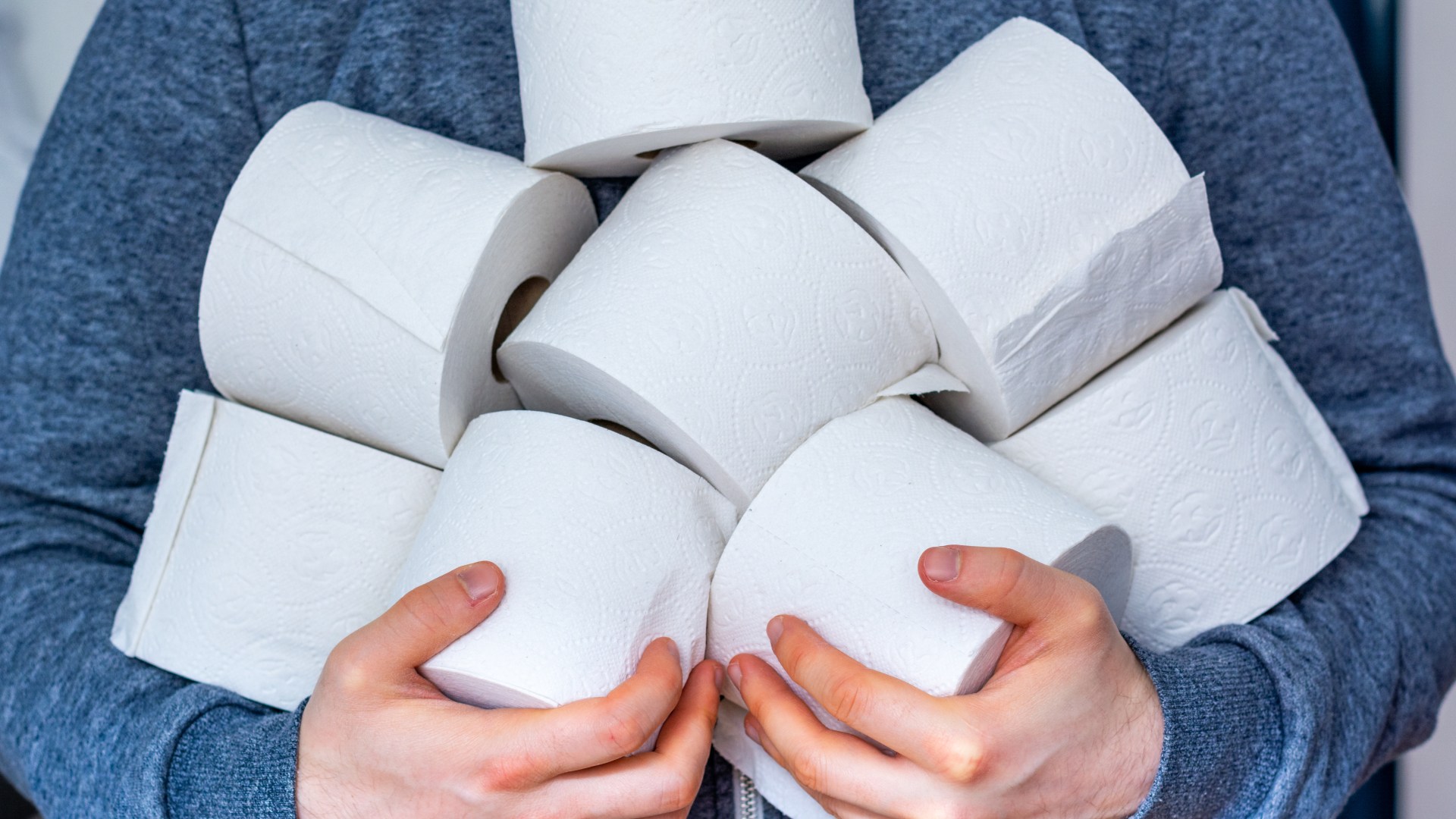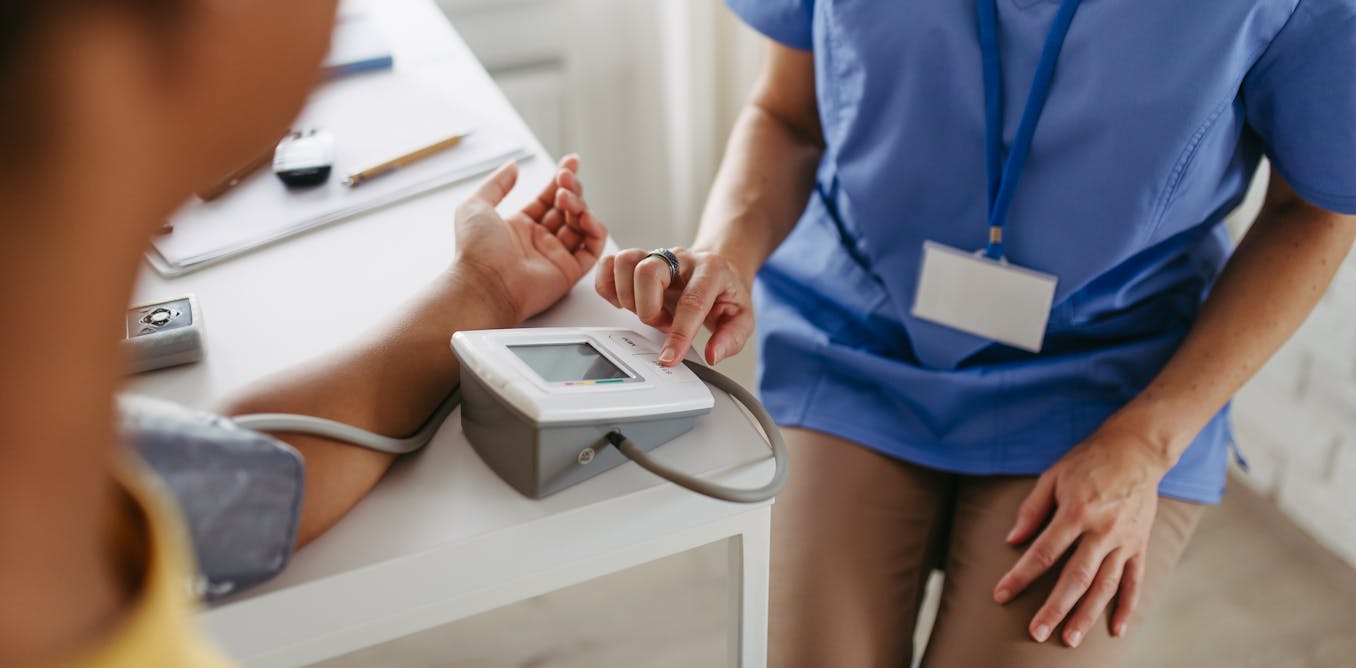WHEN you’re struggling to go for a number two life can get seriously uncomfortable.
Research by PrecisionBiotics has found that only two in five adults enjoy regular and pain-free bowel movements, dropping to just over a third for women.
3
Plus, the same research has found that 11 per cent of adults poo just once or twice a week and four per cent per cent poo less than once a week.
A separate study, published earlier this year, found the number of times you go each week can predict how well you might be in the future.
Everyone’s system is a little different, and according to experts, regularity is what you need.
But the ideal amount – or the ‘Goldilocks Zone’ as the researchers from the Institute for Systems Biology call it – is at least once a day.
Dr Emily Leeming is a microbiome scientist, registered dietitian and author of ‘Genius Gut: The Life-Changing Science of Eating for Your Second Brain’.
She says that three times a day to three times a week is deemed as ‘normal’ however, if you haven’t done a poo at least three times in the past week or are pooping less often than usual, you may be constipated.
“Other signs of constipation include poos that are very large or small, hard, dry, or lumpy,” she explains.
“You might also be straining or in pain when you go or feel like you haven’t fully emptied your bowels.
“These symptoms mean your digestion might need a bit of help to get back to normal.”
Emily adds that your stools should be dark brown and be a ‘smooth sausage’ shape, or a ‘sausage with cracks in it’.
Struggling to get things moving down there? These expert-approved tips might just help…
1. Eat Kiwis
This small green fruit doesn’t just pack in a number of nutrients, but it could be the secret to a smoother number two, too!
“Eating two kiwi fruits a day can be an effective way to improve constipation as the fibre in the kiwi fruit can help move food through your intestines so it’s easier to pass,” says Emily.
2. Aim for 90 degrees
How you sit on the toilet could make all the difference to your ability to poop comfortably.
Emily explains: “Put your feet on top of a small stool when you’re sitting on the toilet, with your knees at a 90-degree angle.
“This straightens out your back passage, making it easier to do a number two.”
Normal for you

When it comes to going for a number two, plenty of people aren’t really sure what’s normal.
Keeping an eye on what’s ‘normal’ for you though is crucial, as is being aware of the signs and symptoms of bowel cancer.
The five red-flag symptoms of bowel cancer include:
- Bleeding from the back passage, or blood in your poo
- A change in your normal toilet habits – going more frequently for example
- Pain or a lump in your tummy
- Extreme tiredness
- Losing weight
If you notice any changes to your usual habits, don’t be embarrassed, speak to your GP.
And if you are eligible for a bowel cancer testing kit, make sure to do on.
The Sun launched the No Time 2 Lose campaign in April 2018 – to call on the Government to lower the bowel cancer screening age to 50 and raise symptom awareness.
As a result, people in their 50s have started being invited for screenings.
Or try a Squatty Potty which comes in a range of different colours to suit every bathroom.
3. Have a tablespoon of olive oil
Not just a go-to for your salad dressing, a tablespoon of olive oil could also help to keep things ‘moving’.
Registered dietician Kirsten Jackson explains that olive oil is thought to work by triggering the ‘gastro-colic reflex’.
“This is a nervous system reaction that occurs to move things along the gut to make way for new food,” she says.
“We know that fatty foods can trigger this off so this is likely why taking a dose of oil helps.”
Research published in the Journal of Renal Nutrition found that when constipated patients took 4ml of olive oil every day it helped to soften stools and relieve constipation as effectively as mineral oil, a commonly used stool softener.
4. Go for a 30-minute walk

3
Sitting still for hours at a time does your digestion no favours.
Emily says that even a gentle walk can help to stimulate your digestive muscles, helping to move food through your gut.
“Try doing some gentle exercise, like going for a walk, in the 30 minutes after a meal.”
5. Take deep breathes
Pooing in public places might leave you feeling anxious, making it even harder to ‘go’ comfortably.
In fact, you might tense up and avoid going to the toilet altogether.
Emily says: “If you struggle with constipation it’s important to listen to the urges to go, as ignoring them can confuse your body and make matters worse.
“Focus on deep breathing to help you relax, as tensing up often makes it harder to go.
“Remember, everyone needs to go, and holding it in can lead to more discomfort, so try to remind yourself that it’s a natural, normal process.”
6. Eat three (healthy) meals per day
Fasting in the morning? Or skipping lunch because you’re short on time?
Prioritising your three meals each day is a key way to help alleviate constipation.
“Eating in general helps stimulate the bowel to move and also helps you get enough fibre in,” says Kirsten.
Focus on healthy eating too.
Research suggests that higher intakes of whole fruits, vegetables, greens and beans, whole grains, seafood, and plant proteins (such as chickpeas) decrease the odds of constipation.
Other protein-rich foods and higher fatty acids ratio (think oily fish and olive oil) can also make it easier to go.
7. AVOID chia seeds

3
On social media, mini but mighty chia seeds are often praised for their ability to help you go.
However, Kirsten says: “Although this seed is super high in fibre, it’s the insoluble type of fibre, which has a very high viscosity meaning that it can slow the gut down further.”
8. Opt for soluble fibre
Jordan Haworth, a clinical physiologist at the Functional Gut Clinic says you need to focus on soluble fibre.
“This is particularly important for people with sensitive tummies such as those with IBS.
“Soluble fibre is easier on the gut and helps poo to retain more water making it easier to pass.”
Soluble fibre is found in apples, carrots, peas, oats, nuts and seeds.
9. Drink 500ml of mineral water each day
We know the importance of drinking enough water; whether it’s tap or bottled, H20 is needed to eliminate waste products from the body (via urine) and to replace lost water from breathing and through sweat, according to the NHS.
A lack of fluid can mean our body doesn’t function correctly.
However, Jordan says that mineral water may help to increase bowel movements.
Research in the European Journal of Nutrition found that the daily consumption of 500ml of natural mineral water rich in magnesium sulphate and sodium sulphate improved bowel movement frequency as well as stool consistency in people suffering from constipation.
“Magnesium is a natural laxative that can also be taken in supplement form, such as magnesium oxide or citrate,” adds Jordan.
As well as this, if you’re increasing your fibre intake in a bid to help boost your bowels, Jordan recommends drinking more water generally to help reduce the chances of bloating from an uptake in fibre.
10. Check your pee
Whilst we’re on the topic of water, a good way to check if you’re dehydrated is by checking the colour of your urine.
“Many of us are chronically dehydrated, which can cause constipation as water can be absorbed from your bowels into your body, hardening the poo and making it more difficult to pass,” explains Emily.
“Your urine should be a pale lemonade colour. If it looks like apple juice, then you need to drink more.”
11. Eat a probiotic yoghurt at lunch
Although yoghurt generally, as a fermented product, contains some probiotics (beneficial gut bacteria), you can do your gut even more favours by choosing yoghurt with added probiotics.
“There’s good evidence for the bacteria strains found in Activia and Yakult to help with constipation and bowel movements,” explains Jordan.
When to visit the doctor about your poo

Usually, irregular changes in pooping habits usually resolve within a short amount of time and are no cause for concern.
But please see your GP if your issues don’t clear up within one to two weeks, or you have any of the following issues:
- Blood in your poo
- Black poo
- New onset of “pencil-thin” poo
- Weight loss or fever that accompanies diarrhoea or constipation
- Severe abdominal pain
- Vomiting blood or a substance that looks like coffee grounds
Source: Medical News Today




